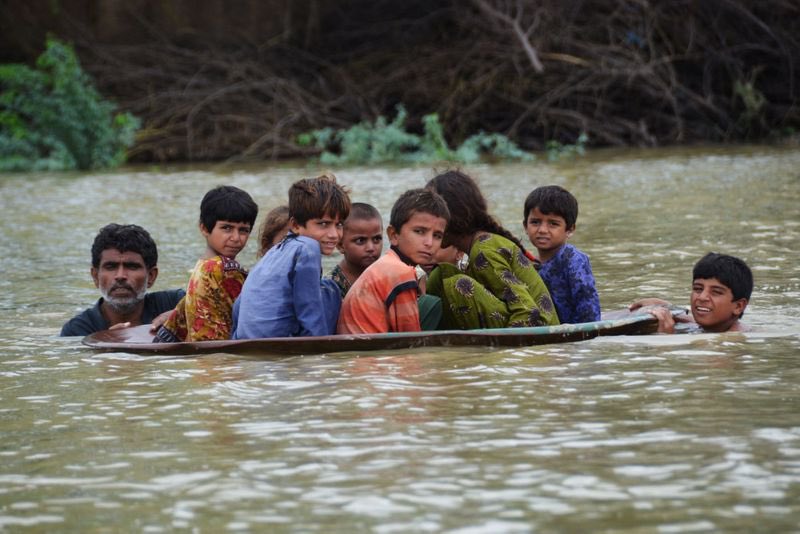Damage from the massive floods in Pakistan is expected to cost over $10 billion.
Pakistan’s Prime Minister Shehbaz Sharif thanked the Amir Sheikh Tamim bin Hamad Al Thani for Qatar’s assistance with relief efforts, in a phone call between the two leaders.
Shehbaz made particular mention of an air bridge launched by Qatar for the delivery of supplies and equipment, as well as the construction of a field hospital in Sindh.
During the phone call, according to a report, Sheikh Tamim pledged his country’s support for Pakistan’s flood victims.
1,314 people have died as a result of Pakistan’s disastrous floods, and the nation is currently dealing with a scale of relief and rescue that is almost unheard of.
The floods wrecked over 540,000 homes and resulted in the deaths of over 700,000 animals, according to latests statistics reported by Pakistan-based channel.
Large parts of the drowning South Asian country remain submerged, especially the provinces of Balochistan, Khyber Pakhtunkhwa and Sindh.
The country received 390.7 millimeters of rain in the three months through August, which is approximately 190% more than the 30-year normal (15.38 inches).
The 50 million-person Sindh province was hardest hit, receiving 464% more rain than the 30-year normal.
Balochistan has received 436% more rain than the 30-year average this monsoon.
Widespread destruction has occurred in the province, including the washing away of important rail and road networks as well as malfunctions in the telecommunications and electrical grids.
At the onset of the natural calamity, an influx of nations rushed in with urgent relief to help alleviate the situation in Pakistan.
A 23-tonne urgent aid plane of the Amiri Air Force was sent in collaboration with the Qatar International Search and Rescue Group of the Internal Security Force (Lekhwiya), Qatar Charity, and the Qatar Red Crescent Society (QRCS) to continue the urgent relief assistance provided by Qatar to the flood-affected people.
As an immediate response to the floods, QRCS allocated $100,000 from its Disaster Response Fund to offer support to Pakistan’s flood victims, where more than 30 million have been affected.
The urgent humanitarian intervention plan entails emergency shelter and household goods provided to 200 flood-affected families in Mirpur Khas District, Sindh Province, totalling 1,400 individuals.
Battling at the forefront of the climate crisis, Pakistan is also receiving 200 emergency shelter tents, 200 family hygiene kits, and 1,000 blankets.
Damage from the massive floods in Pakistan is expected to cost over $10 billion as one third of the country is underwater.
Record monsoon rains and melting glaciers in northern mountains ensued deadly floods that have affected 33 million people.
World powers and climate change
The horrific floods have prompted many to speak out on the issues of climate change and the major role countries play in exacerbating the dooming process.
“Climate change is a global justice issue. Rich countries like our own pump out massive levels of carbon emissions, while poor countries like Pakistan have to pay for it. With their crops, their homes, their lives,” Mehdi Hassan said on Twitter for MSNBC.
Pakistan is one of the 10 countries majorly affected by the global climate crisis, although though the struggling South Asian country is “barely even responsible for this very global problem,” said Hassan.

Although it is responsible for just less than 1% of global carbon emissions, Pakistan is currently the foremost country battling with the inevitable climate crisis.
Since 1959, Pakistan has been contributing 0.4% to the world’s historic greenhouse gas emissions. On a global level, the United States accounts for 21.5% while China is responsible for 16.5% and the EU countries make up 15%.
“Climate breakdown is playing out along colonial lines,” an expert wrote on Twitter.







